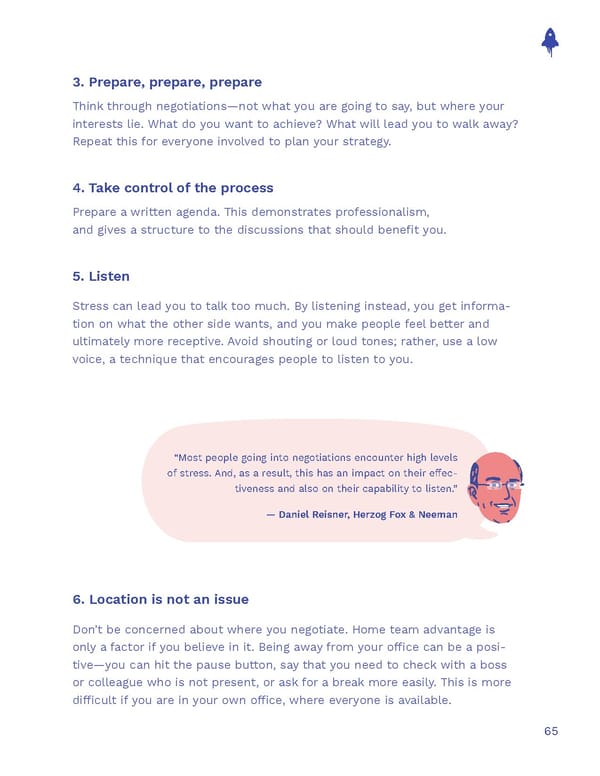3. Prepare, prepare, prepare Think through negotiations—not what you are going to say, but where your interests lie. What do you want to achieve? What will lead you to walk away? Repeat this for everyone involved to plan your strategy. 4. Take control of the process Prepare a written agenda. This demonstrates professionalism, and gives a structure to the discussions that should benefit you. 5. Listen Stress can lead you to talk too much. By listening instead, you get informa- tion on what the other side wants, and you make people feel better and ultimately more receptive. Avoid shouting or loud tones; rather, use a low voice, a technique that encourages people to listen to you. “Most people going into negotiations encounter high levels of stress. And, as a result, this has an impact on their effec- tiveness and also on their capability to listen.” — Daniel Reisner, Herzog Fox & Neeman 6. Location is not an issue Don’t be concerned about where you negotiate. Home team advantage is only a factor if you believe in it. Being away from your office can be a posi- tive—you can hit the pause button, say that you need to check with a boss or colleague who is not present, or ask for a break more easily. This is more difficult if you are in your own office, where everyone is available. 65
 The Sales Operations Playbook Page 64 Page 66
The Sales Operations Playbook Page 64 Page 66